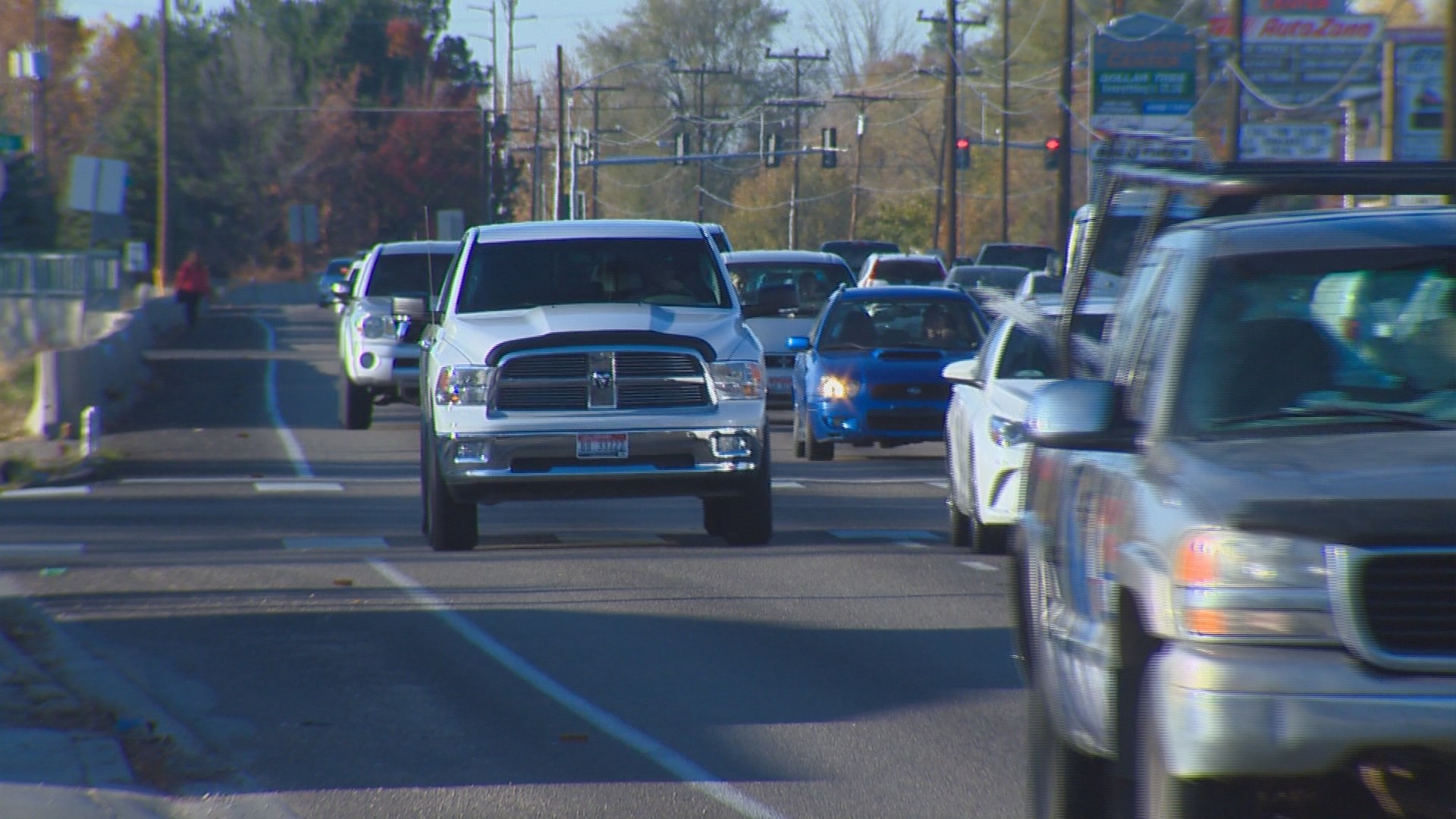BOISE, Idaho — The next time you're tap-tap-tapping your brake pedal all the way to work or all the way home - or watching the light change from red to green to yellow and back to red again - consider this: The commute could be a lot worse somewhere else, and, according to the data, it probably is.
At an estimated 36.8 minutes - or an average of 18.4 minutes each way - the Boise metro area has the tenth-best round-trip commute in the nation. That's according to a study by the online insurance agency Haven Life, which used data from the U.S. Census Bureau's 2017 American Community survey.
Just 2.3 percent of the Boise area's population commutes an hour or more each way per day.
The Haven Life report cites a study from the University of West England that has found that each extra minute of commute time reduces job and leisure time satisfaction.
If you work by the hour, a shorter commute pays off in terms of earnings, too. The study showed that the ratio of weekly working hours to commuting hours in the Boise area is 12.3 to 1. Compare that to the nation's worst commute, Palmdale, California, where people get an average of just 5.3 hours of work in for every hour of commuting. Drivers who commute between Palmdale and the city of Los Angeles have to go around the Angeles National Forest, and 35 percent of Palmdale's population spends at least two hours a day on the road.
While the Treasure Valley can boast a favorable ranking on its commute now, regional planners have pointed to signs of possible trouble down the road.
In a story KTVB did in the fall of 2017, COMPASS planner Carl Miller noted that a half dozen cities in southwest Idaho had doubled in population since 2000.
COMPASS is the metropolitan planning organization for Ada and Canyon counties.
Miller said COMPASS anticipated more than one million people in the area by 2040. His team identified nearly three dozen transportation corridor improvements and projects needed to accommodate the growth. Funding has been approved for several, but not all, of the projects since the 2017 story. COMPASS has updated its list of unfunded needs in Communities in Motion 2040 version 2.0.
Related story: Forbes: Boise fastest-growing city in the U.S.
The 10 cities with the shortest commutes are, in order of rank:
- Lubbock, Texas
- Sioux Falls, South Dakota
- Springfield, Missouri
- Amarillo, Texas
- Eugene, Oregon
- Wichita, Kansas
- Lincoln, Nebraska
- Syracuse, New York
- Tallahassee, Florida
- Boise, Idaho
The 10 cities with the longest commutes are:
- Palmdale, California
- New York City
- Jersey City, New Jersey
- Corona, California
- Newark, New Jersey
- Santa Clarita, California
- Chicago, Illinois
- Moreno Valley, California
- Yonkers, New York
- Naperville, Illinois
The areas with the longest commutes, with round trips ranging from 67.4 minutes in Naperville to 85.4 minutes in Palmdale, are all in or near the nation's three largest metropolitan areas: New York, Los Angeles, and Chicago, where the cost of living keeps many workers from moving closer to where they work.
The cities on the list of shortest commutes, all with round trips averaging between 30 and 40 minutes, are generally away from major metro areas, and serve as their own "hubs," where more people have more opportunities to work and play closer to where they live. One example: each of the ten cities with the shortest commutes is home to a university.
The overwhelming majority of workers continue to rely on cars to get to and from work. In Boise, 88 percent of those responding to the survey commuted by car. Less than one percent reported commuting by public transit, two percent said they walked, and 2.7 percent said they bicycled to and from work.
New York City, with the nation's second-longest commute, is the noticeable exception when it comes to car commuting: Less than 27 percent drive to work, 56.5 percent use public transit, and ten percent walk.
Federal government spending on mass transit increased from $15.2 billion in 2005 to $17 billion in 2017. Spending on highways decreased from $55.3 billion to $45.8 billion from 2005 to 2017. The study found that despite those changes, Americans' commuting habits changed very little.


